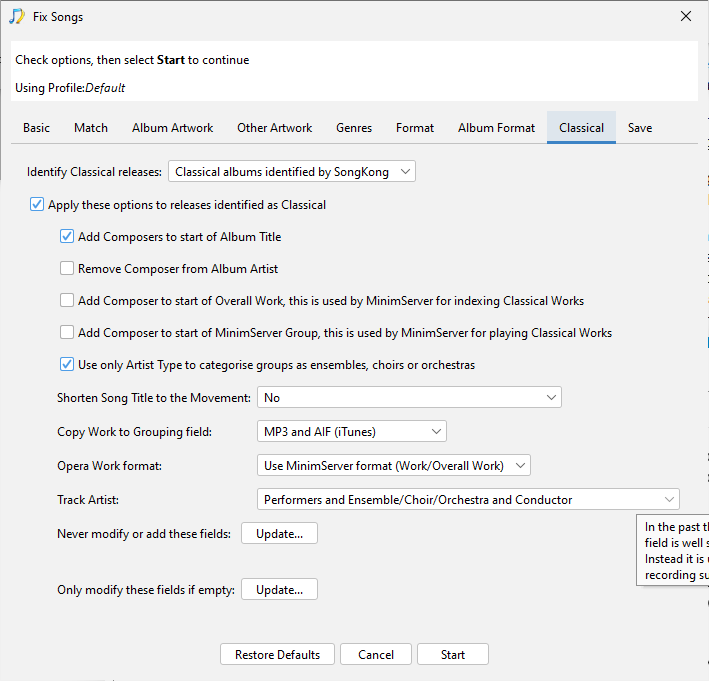Thanks. Then, may I offer a more fully-featured comparison with Yate, which I’ve used extensively for many years with my exclusively-‘Classical’ music collection in Roon?
The main reason for this is to point out that Yate has a myriad of features (not to mention outstanding technical support), which - respectfully, Paul - I don’t believe all emerge - even from your detailed comparison.
My intention is not to ‘pitch’ Yate: no one tagger is likely to suit everyone: thorough and appropriate tagging is a complex area of audio and music. Thankfully, Roon has unambiguous guidelines on the subject. Yate is both scrupulous and flexible in following them.
I’ve found it useful (and important) to understand the underlying principles on which Yate is based. My experience (having tried the other taggers referred to) is that these basic design objectives do distinguish Yate from the rest.
What’s more, to understand such distinction(s) benefits Roon users (on macOS) looking to become expert (competent, even  ) with tagging.
) with tagging.
Yate relies less on the what some might call the elusive shibboleth of matching at all costs.
Rather, Yate puts the user in full control - perhaps most obviously and usefully with its amazing number of ‘Actions’ - a sophisticated scripting mechanism.
Sample Actions are only the start… Yate’s developer seems never to sleep and is always willing to help users with specific needs to achieve them via this inbuilt scripting etc which works so well in Yate.
I’d go as far as to say that pretty much anything can be achieved with these automation and (text) manipulation (etc) tools in what - for me, a long time user as I say - is in fact a highly intuitive UI.
Yate’s documentation is superb. In fact for the price at which Yate is made available, the range of features and functionality, the support and the robustness of the app are truly remarkable. Perhaps that is one of the reasons why it has such a strong following amongst users.
Yate is massively customizable - one of its greatest strengths; I’ve always felt in total control of using a very open structure (including spreadsheet-style editing, actually) to achieve equally extensive automation.
Yate is also actually very good indeed for Classical - again, if for no other reason than because of its open structure and huge number of ways of doing so many things to and with (single and combinations of) tags.
Yate integrates well with other applications… it’s ‘Open With’ functionality; it does support video files; and batch processing; and has a REGEX (Regular Expression) tester. Yate can read and write JSON and plist files; has ReplayGain calculation and integrates with Apple Music (service), iTunes, Music, TV integration; Yate has Spotify playlist creation; and Beatport as well as IMDb integration. In fact artwork can be resized ‘in situ’ and such formats converted. Yate supports all metadata in all audio formats.
So for anyone contemplating a tagger for use prior to import in Roon (the substance of this thread), your table is a great start, Paul - and thanks again; but could well be expanded, I think you’ll agree  .
.
